#Best Songs of Kalyanji-Anandji
Text
Lyrics Dil To Hai Dil
Lyrics Dil To Hai Dil
Dil To Hai Dil-Song contents:
Lyrics in English
Hindi Lyrics
YouTube Video
Song Trivia
More
Lyrics in English | Dil To Hai Dil | Muqaddar Ka Sikandar (1978) | Rakhee, Amitabh Bachchan, Vinod Khanna | Lata Mangeshkar
Aa…Aa…Aa…Aa…
Dil To Hai DilDil Ka AitbaarKya KeejeDil To Hai DilDil Ka AitbaarKya Keeje
Aa Gaya JoKisi Pe PyarKya KeejeAa Gaya JoKisi Pe PyarKya Keeje
Dil To Hai DilDil Ka…

View On WordPress
#1970s Evergreen Hindi Songs#A to Z Bollywood Songs#A to Z Hindi Retro Romantic Songs#A to Z Hindi Songs#A to Z Song Lyrics#A to Z Songs#All Time Best Composition of Kalyanji-Anandji#All Time Best Songs of Rakhee#Amitabh Bachchan and Rakhee Songs#Amitabh Bachchan Songs#Antakshari Songs from D#Best Bollywood Romantic Songs of 70s#Best of Amitabh Bachchan and Rakhee#Best of Kalyanji-Anandji and Anjaan#Best of Kalyanji-Anandji and Lata Mangeshkar#Best of Lata Mangeshkar#Best Romantic Songs of 1978#Best Romantic Songs of 70s#Best Romantic Songs of Lata Mangeshkar#Best Romantic Songs of Rakhee#Best Solo Songs of Lata Mangeshkar#Best Songs of 1978#Best Songs of 70s#Best Songs of Kalyanji-Anandji#Best Songs of Rakhee#Best Songs Written by Anjaan#Best Soulful Bollywood Songs#Best Soulful Songs of 1978#Best Soulful Songs of 70s#Bollywood Songs from Dil
0 notes
Photo
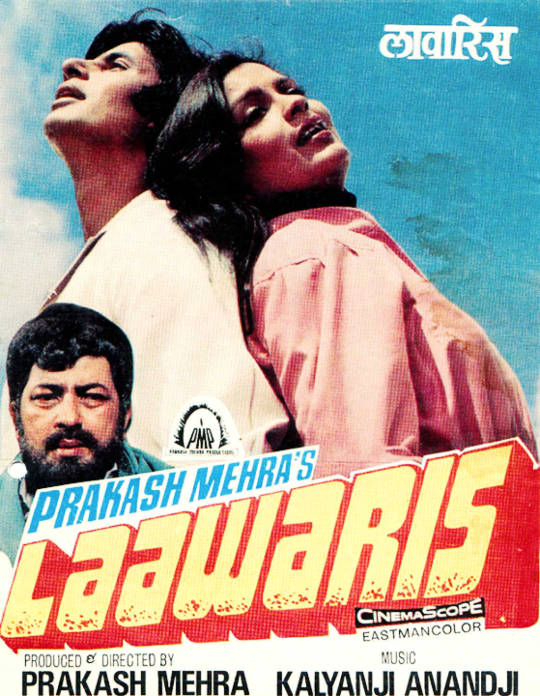
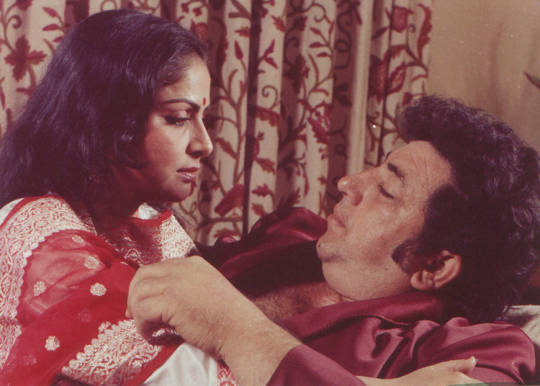
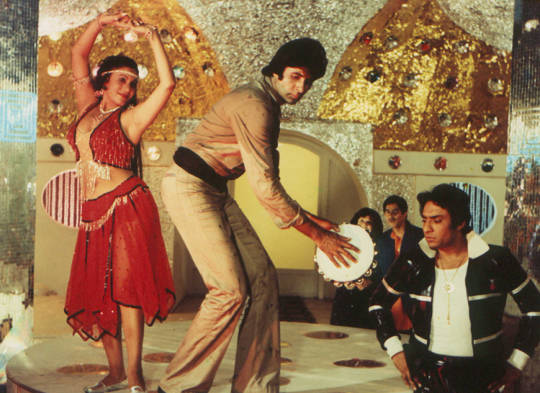


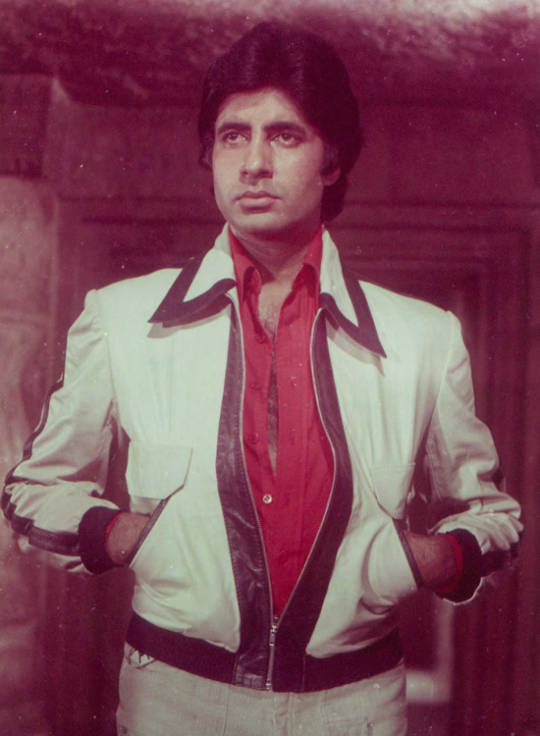
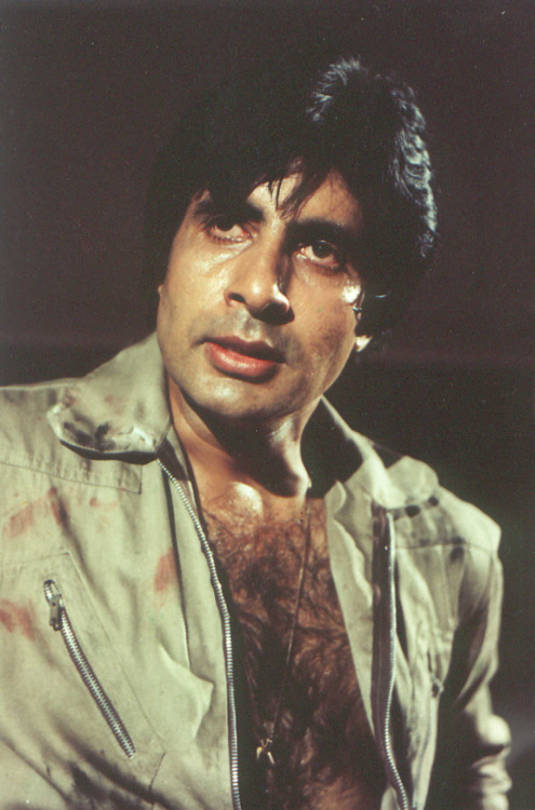
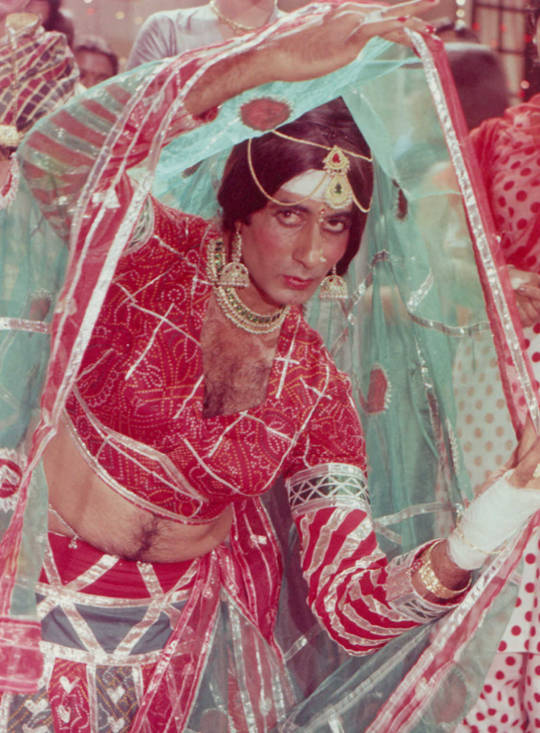
39 Years Of Laawaris (22/05/1981)
Laawaris is directed by Prakash Mehra. The film became known for its song “Mere Angene Mein Tumhara Kya Kaam Hai” rendered twice: the first time by a young Alka Yagnik, who earned her first Filmfare nomination as a best female playback singer, and the second time by Amitabh Bachchan. The second version became very popular due to Bachan’s comedic performance in drag. Laawaris starred Amitabh Bachchan, Amjad Khan, Zeenat Aman, Ranjeet and Raakhee. Songs by Kalyanji Anandji, and lyrics by Anjaan and Prakash Mehra.
What are your favourite songs from the film?
#laawaris (1981)#prakash mehra#alka yagnik#amitabh bachchan#amjad khan#zeenat aman#ranjeet#raakhee#kalyanji anandji#anjaan#bollywood#bollywoodirect
11 notes
·
View notes
Text
30 June Kalyanji Virji Shah (Kalyanji-Anandji): 92nd Birth Anniversary
By

Siraj Syed
Kalyanji Virji Shah (Kalyanji-Anandji): 92nd Birth Anniversary
30 June 1928-24 August 2000
From sleeve notes written for SaReGaMa’s LEGENDS CD set in 2009:
More than half a century after the cobra swayed to the clavioline, masquerading as the been, in ‘Tan dole mera man dole’, its notes still reverberate across India, and in many other parts of the world. It was, and remains, Kalyanji Virji Shah’s best-known musical signature. Kalyanji had first used the instrument in a film called Naag Panchami (1953, music Chitragupta), but that went largely un-noticed. ‘Tan dole’, a Hemant Kumar tune from a box-office hit, was the chart-topper of 1954, so listeners took good notice of its mesmerising been theme. Developed in France by a designer named Constant Martin, the clavioline was introduced in 1947. Five years later, musician Kalyanji was playing it here, in India, in film song takes. Four years after Nagin, Kalyanji had arrived as music director, with Samrat Chandragupta. And the following year, younger brother Anandji, who was a child actor and chorus singer too, joined him to create the K-A team that stood firm for over 40 years. Nevertheless, as Anandji, some four years younger (now 88), is often heard saying, “Kalyanjibhai is watching all this from above. He is very much with us in spirit.” Kalyanji Virji Shah died in the year 2000, at the age of 72.
Born in Kundrodi village of the Mundra taluka in Kutchh, the brothers grew up in Mumbai, where their father ran a food-grain store. Inclined more towards music than academics, they developed the self-taught ability to play a host of instruments, and formed part of school bands. By 1944-45, the teenager siblings had started playing in film song recordings. Big brother set up his own band in 1950, calling it Kalyanji and Party, with Purshottam Upadhyaya singing ‘Too mera chaand maen teree chaandnee’, the super-hit Naushad tune from Dillagi, to thunderous encores. The band performed in Bombay and in other nearby towns. For a while, the businessman in him did surface, and Kalyanji started a tailoring shop in partnership with a friend. Destiny, however, ensured that the shop did not prosper, drawing Kalyanji even closer to a world where a needle was something that played a gramophone record, not a device to stitch clothes with.
Many of us have heard the popular tunes the brothers composed for films like Samrat Chandragupta, Bedard Zamana Kya Jane, Chhalia and Bluff Master, the last two being the earliest directorial forays of director Manmohan Desai, but few would be aware that it was producer Subhash Desai, Manmohan’s brother, who gave Kalyanji his music directorial his break. Impressed with his prowess at song recordings of various recognised composers, Subhash saw a competent future music director in Kalyanji, and made him an offer that was strange, but nevertheless one that he could not refuse. Would he agree to a contract offering him 11 film assignments as music director, with a fee of Rs. 5,000 for the first film, Rs. 10,000 for the second…a recurring Rs. 5,000 increment per film, non-negotiable? The offer was too good to resist, so Kalyanji agreed, but he did ask Subhash, “Why11 films? Why not 10? Or 12?” The reply was convincing, “Eleven is my lucky number.” As it transpired, they did not do 11 films together, but Kalyanji’s career choice was made.
The K-A success story begins with Kalyanji’s kingly debut, Samrat Chandragupta. ‘Chahe paas ho’ is a touching lyric, with a tinge of sadness, as is the next number, ‘Door kahin tu chal’, another Rafi-Lata duet, from Bedard Zamana Kya Jaane, both penned by Bharat Vyas. With a title like Madari, there had to be a snake-charmer and his been in play, and the theme track, penned by Faruk Kaiser and rendered by Lata and Mukesh, indeed provided flashbacks of the legendary Kalyanji patent. Soon after he wrote his first song for them in Chandrasena, Gulshan Bawra penned a real gem in Satta Bazar, and this time the brothers invited their mentor Hemant Kumar to join Lata in the recording room, with amazing results. Who can forget ‘Tumhe yaad hoga’? Not yet the He Man he was to become in his later years, Dharmendra in Dil Bhi Tera Hum Bhi Tere was emoting to Mukesh’s emotion-charged playback, rendering Shamim Jaipuri’s rich poetry. Graduating from smaller set-ups into a Raj Kapoor vehicle, K-A hit big time in Chhalia. Nonsensical verse from a sensible writer, Qamar Jalalabadi, ‘Dum dum diga diga’, with Mukesh providing playback to Raj’s on-screen antics, set the aisles afire.
Soon, they were signed to compose for Mehndi Lagi Mere Haath, a Shashi Kapoor starrer, and Bluff Master. Both films enjoyed reasonable success and the music went around too. In Bluff Master, we find the rare phenomenon of four voices being used for the same actor: Mukesh, Hemant Kumar, Shamshad Begum (Shammi Kapoor in drag) and Rafi. It was Rafi who immortalised ‘Govinda ala re’ and sang the duet ‘Husn chala kuchh aisi chal’ with Lata. Anand Bakhshi wrote inspired lyrics for Phool Bane Angaare, and Mukesh, as usual, delivered them with consummate artistry. By 1964, K-A were in the Premier League. That very year, they came up with such melodious tracks as the lilting ‘Humsafar mere humsafar’ (Purnima), where they teamed up with Gulzar, a rarity, and the two Mukesh solos from Ji Chahta Hai and Himalaya Ki God Mein. The former was written by Majrooh, not a K-A regular. Another infrequent teaming worked very well, as Hasrat Jaipuri wrote and Rafi sang in great style, ‘Dil beqarar sa hai’ (Ji Chahta Hai). Melodious, hummable and catchy. A ghazal on Shammi Kapoor with Bakhshi writing and Rafi singing may not be a common occurrence, but just savour ‘Teri zulfen pareshan’ (Preet Na Jane Reet). Staying with Mukesh on Shashi, after MLMH, the duo came up with a moody duet in Juari, ‘Humsafar ab yeh safar kat jayega’. If there was still any doubt about the standing of the duo in the rankings, Jab Jab Phool Khile laid to rest all criticism. Every track was heard everywhere. The songs had it all: pathos, fun, longing, depression, pep. For both K-A and Anand Bakhshi, the success of JJPK was to remain a milestone forever.
Rafi provided playback for debutant Rajesh Khanna in the theme song of his debut vehicle, Raaz, re-uniting K-A with Shamim Jaipuri, producing haunting results. Indeevar’s lyrics sang of cruel fate in Dil Ne Pukara, and who better to voice them than Mukesh, as ‘Waqt karta jo wafa’. In the same vein was the Suhag Raat lament, ‘Khush raho’. Manna De came in to give playback for Pran in Upkar and Zanjeer, rendering two of his most acclaimed numbers. It took the duo 19 hours to record ‘Mere desh ki dharti’, the patriotic anthem of Upkar. Saraswatichandra, based on a literary classic, needed the linguistic mastery of Indeevar to weave in the songs, and the author of ‘Kasme vaade pyar vafa’ made it count. Filmfare awarded the duo for the best music of the year. It was still pristine K-A, full of melody, working with Lata and Mukesh. Another award followed some years later, for Kora Kagaz, which had a pathos-laden title-track in the voice of Kishore. Not many might realise, but K-A used Kishore Kumar for the first time in the 1968 film Suhag Raat, singing a sad song, a full decade after the duo had started their career. A comic song was rendered by Manna De while Mukesh was called-upon to put across the other sad lyric.
Only Rafi could have set swinging mood for Shashi Kapoor to gyrate on screen in ‘Nain milakar chaen churana’ (Aamne Saamne). Rafi for Shashi it was again in Ek Shriman Ek Shrimati and Raja Saab. Part of the female vocals in Raja Saab came from Suman Kalyanpur. Suman had sung for K-A in MLMH and JJPK too, and was to partner Manhar in his first hit number in Vishwas. Giving Hemlata her break in the same film, K-A paired her with good-old friend Mukesh. Soon, the duo was to show its preference for rotating the strike, training and honing a host of budding singing talent, while reverting to the established names with equal regularity. Like a lot of extremely popular Mahendra-Manoj Kumar, Kishore-Amitabh Bachchan and Kishore-Rajesh Khanna outings. Incidentally, K-A took three days to record the back-ground score of Suhaag Raat, while they needed a whole month for Purab Aur Paschim. For the ‘Om jai Jagdeesh Hare’ bhajan of PAP, the composers used 50 chorus singers to get the effect normally created by violins. They called it human resonance. Delay (natural echo) was the highlight of ‘Mere mitwa’ (Geet). The child-like double speed of ‘Na sun sun sun bura’ (Priya) was simply achieved by recording on spool-tape at a particular speed and playing it back at double the speed. Most of their work was done at the Famous, Tardeo, recording studio.
There is Rafi, and not Kishore, for Rajesh Khanna, oozing sensuality as only he could, in Chhoti Bahu: ‘Yeh raat hai pyasi pyasi’, echoing musician hero Rajendra Kumar’s heart-rending call in Geet and charting a romantic route for Dharmendra in Kab Kyon Aur Kahan? He also offers love lessons in Upaasna; in the Haath Ki Safai duet, he makes a solemn promise of eternal love; and he goes on Dilip Kumar for the intoxicating ‘Peete peete’ duet with Asha Bhosle in Bairaag. As Western as it gets is the rare title chorus ‘Pretty pretty Priya’ (Priya) and as Sanskritised as it can get is the Kishore hilarity ‘Priye praneshwari’ (Hum Tum Aur Woh). Kalyanji-Anandji made Shatrughan Sinha sing in Kashmakash, Amitabh Bachchan in Laawaris and Anil Kapoor in Chameli Ki Shaadi. They also gave ample opportunities to the emerging talent of 70s’ generation, as you can sample on the Shailendra Singh, Suresh Wadkar, Anwar, Alka Yagnik and Kanchan tracks.
Known for their hundreds of stage performances, in India and abroad, both brothers also enjoyed a sturdy reputation as funsters, with a joke for every occasion and a keen sense of self-deprecating humour. They once famously described themselves as medical practitioners. “We offer all lines of treatment. If some producer approaches us with symptoms that demand a classical approach, we recommend the Ayurvedic style of medicine: Slow, but efficacious in the long-term. On the other hand, if some film-maker wants to experiment with the musical score of his film, we suggest Homoeopathic type of tunes: May work, may not. Some element of risk is involved. If, however, he wants the juke-boxes to jingle and listeners to start singing along instantaneously, we churn out Allopathic compositions: Like injections, they have instant, strong effect, but the effect may wear out sooner.” Music, along with laughter, is the best medicine known to mankind. Kalyanji-Anandji have already issued a statutory warning to your troubles to keep away, for there’s no place for them, ‘Mere angne men tumhara kya kaam hae?’

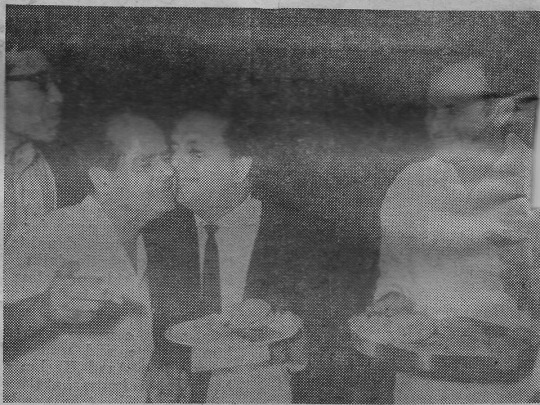
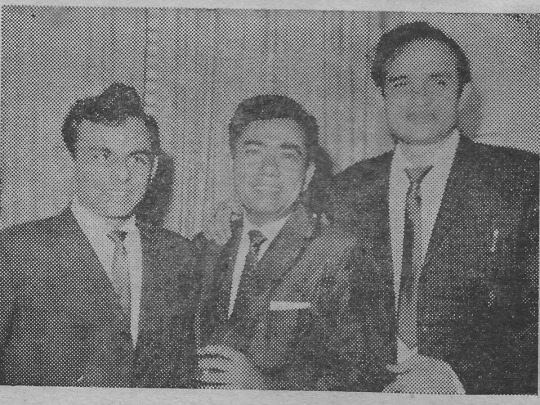
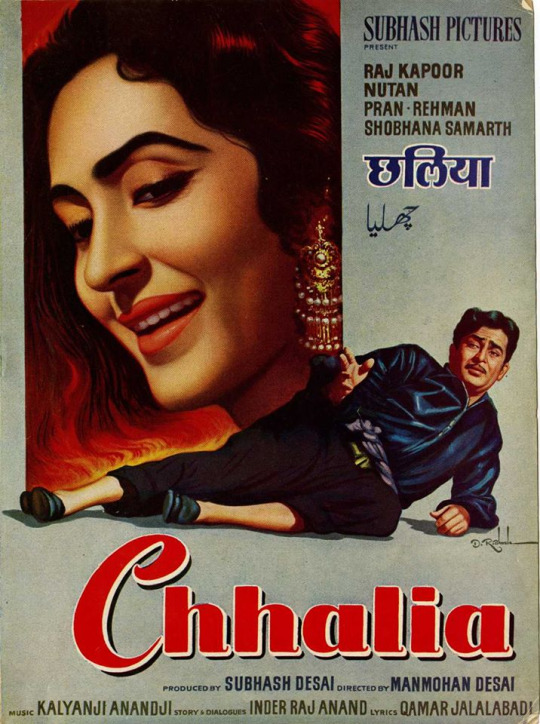
2 notes
·
View notes
Text
@aphextiwn
Water Songs - Songs that are about or make me think of water.
Aphex Twin - Analogue Bubblebath
Bat For Lashes - Seal Jubilee
Beach House - Elegy to the Void
Björk - Bachelorette*
Corinne Bailey Rae - Enchantment
The Cure - Prayers for Rain**
Deerhunter - Twilight at Carbon Lake
Echo & The Bunnymen - The Killing Moon
Edie Brickell and New Bohemians - What I Am
Feist - The Water
Goo Goo Dolls - Black Balloon
Grayboy - Mastered The Art
HEALTH - We Are Water
Jack Johnson - Drink The Water
Kalyanji Anandji - My Guru
The Knife - The Captain***
Mazzy Star - Fade Into You
Modest Mouse - A lot of their songs. All of We Were Dead Before The Ship Even Sank, and especially The Whale Song.
Mono - Yearning
Nine Inch Nails - La Mer, The Great Below and The Way Out Is Through
Patti Smith - Dancing Barefoot
Pink Floyd - Echos
Portishead - The Rip
Radiohead - Weird Fishes/Arpeggi and Go Slowly
A Silver Mt. Zion - Mountains Made of Steam and Kollaps Tradicional (Bury 3 Dynamos)
Slowdive - Catch The Breeze, Erik’s Song, Sing and Miranda
Smoke City - Underwater Love
This Mortal Coil - Dreams Are Like Water
U2 - The Ocean and Walk to the Water
Bold denotes the songs that I feel best capture water????? I guess. Most of the bolded ones are slow moving, quiet affairs.
*I first heard Bachelorette while playing the demo for the first BioShock game.
**Prayers for Rain over The Same Deep Water as You.
***The intro to The Captain.
There are more of course, but those are the ones that stand out the most to me.
3 notes
·
View notes
Text
Best Hindi Songs of Kalyanji Anandji

- कल्याणजी-आनन्दजी ( Kalyanji Anandji )
https://tinyurl.com/uL6-wW-KalyanjiAnandji
On the drop-down menu, you have to click and choose the song to watch & listen.
0 notes
Photo

Welcome back your good old friend ARUNESH on Radio FM livewire broadcast today local time exactly 13:47 in the afternoon hours this Wednesday October 14 N the year of course not yet over still 2020 AD.
A very good morning & afternoon as well to all of U here on Radio FM!
As usual, first the invocation:
GURURA BRAHMA GURURA VISHNU GURURA DEVO MAHESHWARA
GURURA SAKSHAT PARBRAHMA TASMAI SHRI GURUVEH NAMAH|
TASMAI SHRI GURUVEH NAMAH||
And, now for the fun:
||AAPKEI DILLEI VICHHEI JEI THODIEI JEEI JAGAHEI MILLEI JAYEI;
APNEI BETAABEI DILLEI KEI KALIEI BHIEI KHILEI JAYEI||
DEEWANEI HAINEI DEEWANOEI KOEI NAAEI GHAREI CHAHIYEI
NAAEI DARREI CHAHIYEI
MOHBAATEI BHARIEI EKEI NZREI CHAHIYEI
NZREI CHAHIYEI
PHOOLONEI BHARIEI HOEI CHAHEI KAANTONEI BHARIEI
JISSEI DGREI TOOEI CHALEI
WOHEI DGREI CHAHIYEI
DGREI CHAHIYEI
HAIEI SIRREI PEI HUMMAREI KHULAEI AASMAANEI
KHULLAEI AASMAANEI
HAIEI APNAEI BASSEI YAHIEI AASHIYANEI
YAHIEI AASHIYANEI
DEEWANEI HAINEI DEEWANOEI KOEI NAAEI GHAREI CHAHIYEI
NAAEI DARREI CHAHIYEI
MOHBAATEI BHARIEI EKEI NZREI CHAHIYEI
NZREI CHAHIYEI
PHOOLONEI BHARIEI HOEI CHAHEI KAANTONEI BHARIEI
JISSEI DGREI TOOEI CHALEI
WOHEI DGREI CHAHIYEI
DGREI CHAHIYEI
JWANIEI MEI JWANIEI KEI SHAREI HOEI JWANEI
MEREI MEHERBAANEI
MUJHEI TOOEI HIEI TOOEI
HMSFREI CHAHIYEI
HMSFREI CHAHIYEI
DEEWANEI HAINEI DEEWANOEI KOEI NAAEI GHAREI CHAHIYEI
NAAEI DARREI CHAHIYEI
MOHBAATEI BHARIEI EKEI NZREI CHAHIYEI
NZREI CHAHIYEI
PHOOLONEI BHARIEI HOEI CHAHEI KAANTONEI BHARIEI
JISSEI DGREI TOOEI CHALEI
WOHEI DGREI CHAHIYEI
DGREI CHAHIYEI
NIGAHONEI-NIGAHONEI MEI AISEI ISHAREI HUEI
ISHAREI HUEI
NZREI BANEI GYIEI HAIEI ZUBANEI PYAREI KIEI
KUCCHEI KEHNEI KIEI ABBEI TTOEI ZAROORATEI NAHIEI
ZAROORATEI NAHIEI
MAZAEI AAEI GYAEI JEETEI KAAEI HAAREI MEI
DEEWANEI HAINEI DEEWANOEI KOEI NAAEI GHAREI CHAHIYEI
NAAEI DARREI CHAHIYEI
MOHBAATEI BHARIEI EKEI NZREI CHAHIYEI
NZREI CHAHIYEI
PHOOLONEI BHARIEI HOEI CHAHEI KAANTONEI BHARIEI
JISSEI DGREI TOOEI CHALEI
WOHEI DGREI CHAHIYEI
DGREI CHAHIYEI
Well, this musical lyric from “ZANJEER” with the still on Amitabh-Jaya is a must watch for anybody in sheer love with poetry at its lilting enchanting best as also those who care for deep emotions and depth in writing! It will feel you come alive in full empathy with the lyrical song sung so very absorbingly full of all good sentiments by none other than your very own singing maestros MOHD. RAFI Sahib along with the other singing nightingale LATA MANGESHKAR JI composed ever so brilliantly by the KALYANJI-ANANDJI duo and of course penned by the ever so versatile lyricist GULSHAN BAWARA JEE!!
The wording of the melodious lyric just ecstatic, to put it simply or mildly at that! It conveys the fact that real love is simply demanding a love full glance N not any materialistic things like houses or palaces. Further, when there is love, there is everything and without love, life is simply barren and virtually nothing, a big zero, if I may put IT that way!!
Further that real love needs no words to convey its message which is simply and very interestingly at that, conveyed merely by eye contact! Moreover, one who loses in love is the real hero, the real winner while the other one, in sheer N sharp contrast, happens to be a big zero and the actual loser, so to say, in actual parlance!!
Be that as it may, some people think and imagine that it’s just the imagination of the poets who literally imagine IT to be utterly true and take it to be the gospel Truth! But all of us know and are acutely aware that such radically brilliant and beautiful things do actually happen in real practical life rather than just simply theoretically on the screen, and thus, we have all the time in the world to spend on such radically beautiful and brilliant things!!
Meanwhile, without getting involved in any heated arguments and/or controversies, let’s simply move on N march further onto the next slide of the day here on Radio FM N it’s going to be a really super cool, super chilled one up next...take my word for IT
Do watch out for the next one, a really cool N chilly thriller…!!!
DO WATCH OUT....!!!!
0 notes
Text
Facebook strikes global licensing deal with Indian music label Saregama
Facebook said on Wednesday it has entered into a global deal with Saregama, one of India’s oldest and largest music labels, to license its music for video and other social experiences across its eponymous service and Instagram.
The partnership, which comes weeks after Swedish music giant Spotify also signed a deal with Saregama, will allow users to choose from a wide variety of music to add to their social experiences such as videos, stories via music stickers and other creative content, Facebook said. Users will also be able to add songs to their Facebook profile.
Saregama, one of the oldest music labels in the world, is the best place to find tracks from several India music legends, including Lata Mangeshkar, R.D. Burman, Mohammed Rafi, Talat Mahmood, Manna Dey, Kalyanji-Anandji and Hemant Kumar. The giant says its library contains more than 100,000 Bollywood songs, ghazals and more in over 25 languages.
Kolakata-based Saregama’s shares surged by 20% on the news.
Facebook maintains similar deals with other music labels in India, its biggest market by user count, including Yash Raj Films, Zee Music Company and T-Series, one of the top YouTube channels worldwide. Bloomberg reported last year that Facebook was also in talks with international music labels and had started testing video music in India and Indonesia.
“At Facebook, we believe music is an integral part of self-expression and bringing people closer together and creating memories that last. We are very proud to partner with Saregama that will allow people on our platforms, globally, to use their favourite retro Indian music to further enrich their content on our platforms,” said Manish Chopra, director and head of Partnerships at Facebook India, in a statement.
Facebook has also signed deals with music labels such as Universal Music Group to license its recorded music and publishing catalogs for video and other content across its services, including Oculus. In 2018, Facebook also signed a deal with Spotify to allow users to share Spotify albums and tracks to Instagram Stories — a feature it added to Facebook Stories last year.
0 notes
Text
Lyrics Pyar Zindagi Hai
Lyrics Pyar Zindagi Hai
O Pyar Zindagi Hai-Song contents:
Lyrics in English
Hindi Lyrics
YouTube Video
Song Trivia
More
Lyrics in English | Pyar Zindagi Hai | Muqaddar Ka Sikandar (1978) | Amitabh Bachchan, Vinod Khanna, Rakhee Gulzar | Asha Bhosle, Lata Mangeshkar, Mahendra Kapoor
Pyar Zindagi HaiPyar Bandagi HaiBandagi HaiYahalla YahallaHoo Ya AllahOo Yahalla YahallaHoo Ya Allah
Pyar Se Pyar KaroYe Umra Pyar…
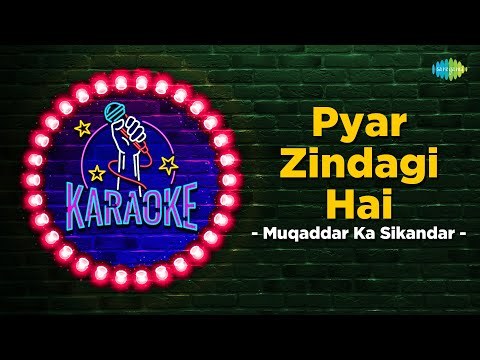
View On WordPress
#A to Z Bollywood Songs#A to Z Hindi Songs#A to Z Song Lyrics#A to Z Songs#All Time Best Composition of Kalyanji-Anandji#All Time Best Songs of Rakhee#All Time Best Songs of Vinod Khanna#All Time Best Songs Written by Anjaan#All Tme Best Songs of Vinod Khann#Amitabh Bachchan and Rakhee Songs#Amitabh Bachchan Songs#Antakshari Songs from P#Asha Bhosle Songs#Best Bollywood Retro Dance Numbers#Best Bollywood Romantic Songs of 70s#Best Dance Songs of 1978#Best Dance Songs of 70s#Best Love Songs of 70s#Best Love Songs of Vinod Khanna#Best of Amitabh Bachchan and Rakhee#Best of Amitabh Bachchan and Vinod Khanna Songs#Best of Kalyanji-Anandji and Anjaan#Best of Kalyanji-Anandji and Asha Bhosle#Best of Kalyanji-Anandji and Lata Mangeshkar#Best Romantic Songs of 70s#Best Romantic Songs of Rakhee#Best Romantic Songs of Vinod Khanna#Best Songs of 1978#Best Songs of 70s#Best Songs of Kalyanji-Anandji
0 notes
Photo
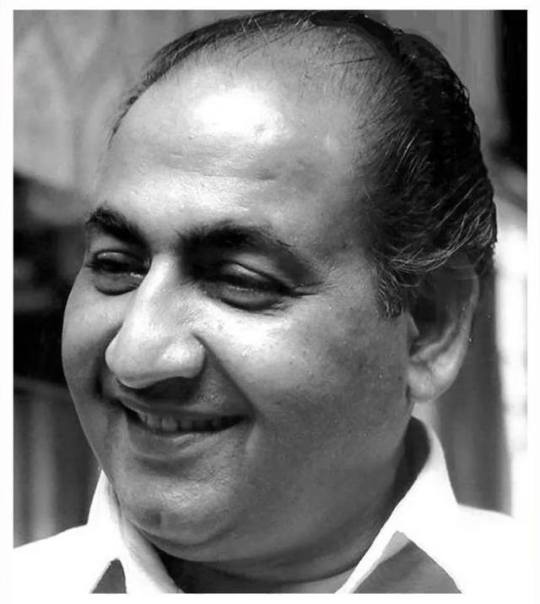
जब कभी भी सुनोगे गीत मेरे, संग संग तुम भी गुनगुनाओगे...
A heartfelt homage to the soul of Hindi film music, on the great Mohammed Rafi Saab's 94th birth anniversary.
In a singing career spanning 35 years, Mohammed Rafi came to be regarded by many as the greatest playback singer the Hindi film industry has ever known.
Famed music director Naushad Ali described Mohammed Rafi as India’s new ‘Tansen’. Apart from Naushad, Rafi worked with all the well-known music directors of his time, including S D Burman, Shankar-Jaikishen, Laxmikant-Pyarelal, Madan Mohan, Kalyanji Anandji and O P Nayyar.
One of his hallmarks was his ability to sing in a variety of styles, ranging from classical and patriotic songs to qawwalis, ghazals, and bhajans, though he is best known for his romantic songs and duets. He became the ‘voice’ of most of the actors across the decades – including Dilip Kumar, Shammi Kapoor, Dev Anand, Dharmendra, and Amitabh Bachchan. It was countless songs like ‘Suhani Raat Dhal Chuki’ (Dulari), ‘O Duniya ke Rakhwaale’ (Baiju Bawra), 'Chahunga Main Tujhe Saanjh Savere' (Dosti), 'Baharon Phool Barsaao" (Suraj) and ‘Chaudhvin Ka Chand Ho' (Chaudhvin Ka Chand) that have made Mohammed Rafi live on in the hearts of millions long after he passed away in 1980.
His voice brought fantasy to life, and he continues to inspire succeeding generations.
22 notes
·
View notes
Text
Facebook strikes global licensing deal with Indian music label Saregama
Facebook said on Wednesday it has entered into a global deal with Saregama, one of India’s oldest and largest music labels, to license its music for video and other social experiences across its eponymous service and Instagram.
The partnership, which comes weeks after Swedish music giant Spotify also signed a deal with Saregama, will allow users to choose from a wide variety of music to add to their social experiences such as videos, stories via music stickers and other creative content, Facebook said. Users will also be able to add songs to their Facebook profile.
Saregama, one of the oldest music labels in the world, is the best place to find tracks from several India music legends, including Lata Mangeshkar, R.D. Burman, Mohammed Rafi, Talat Mahmood, Manna Dey, Kalyanji-Anandji and Hemant Kumar. The giant says its library contains more than 100,000 Bollywood songs, ghazals and more in over 25 languages.
Kolakata-based Saregama’s shares surged by 20% on the news.
Facebook maintains similar deals with other music labels in India, its biggest market by user count, including Yash Raj Films, Zee Music Company and T-Series, one of the top YouTube channels worldwide. Bloomberg reported last year that Facebook was also in talks with international music labels and had started testing video music in India and Indonesia.
“At Facebook, we believe music is an integral part of self-expression and bringing people closer together and creating memories that last. We are very proud to partner with Saregama that will allow people on our platforms, globally, to use their favourite retro Indian music to further enrich their content on our platforms,” said Manish Chopra, director and head of Partnerships at Facebook India, in a statement.
Facebook has also signed deals with music labels such as Universal Music Group to license its recorded music and publishing catalogs for video and other content across its services, including Oculus. In 2018, Facebook also signed a deal with Spotify to allow users to share Spotify albums and tracks to Instagram Stories — a feature it added to Facebook Stories last year.
via Social – TechCrunch https://ift.tt/30234lZ
0 notes
Text
Facebook strikes global licensing deal with Indian music label Saregama
Facebook said on Wednesday it has entered into a global deal with Saregama, one of India’s oldest music labels, to license its music for video and other social experiences across its eponymous service and Instagram.
The partnership, which comes weeks after Swedish music giant Spotify also signed a deal with Saregama, will allow users to choose from a wide variety of music to add to their social experiences such as videos, stories via music stickers and other creative content, Facebook said. Users will also be able to add songs to their Facebook profile.
Saregama, one of the oldest music labels in the world, is the best place to find tracks from several India music legends including Lata Mangeshkar, R.D. Burman, Mohammed Rafi, Talat Mahmood, Manna Dey, Kalyanji-Anandji, and Hemant Kumar. The giant says its library contains over 100,000 songs, ghazals, and more in over 25 languages.
Facebook maintains similar deals with other music labels in India, its biggest market by users count, including Yash Raj Films, Zee Music Company, and T-Series, one of the top YouTube channels worldwide. Bloomberg reported last year that Facebook was also in talks with international music labels and had started testing video music in India and Indonesia.
“At Facebook, we believe music is an integral part of self-expression and bringing people closer together and creating memories that last. We are very proud to partner with Saregama that will allow people on our platforms, globally, to use their favourite retro Indian music to further enrich their content on our platforms,” said Manish Chopra, Director and Head of Partnerships at Facebook India, in a statement.
Facebook has also signed deals with music labels such as Universal Music Group in the past to license its recorded music and publishing catalogs for video and other content across its services including Oculus. In 2018, Facebook also signed a deal with Spotify to allow users to share Spotify albums, tracks to Instagram Stories — a feature it added to Facebook Stories last year.
from Facebook – TechCrunch https://ift.tt/30234lZ
via IFTTT
0 notes
Text
Facebook strikes global licensing deal with Indian music label Saregama
Facebook said on Wednesday it has entered into a global deal with Saregama, one of India’s oldest music labels, to license its music for video and other social experiences across its eponymous service and Instagram.
The partnership, which comes weeks after Swedish music giant Spotify also signed a deal with Saregama, will allow users to choose from a wide variety of music to add to their social experiences such as videos, stories via music stickers and other creative content, Facebook said. Users will also be able to add songs to their Facebook profile.
Saregama, one of the oldest music labels in the world, is the best place to find tracks from several India music legends including Lata Mangeshkar, R.D. Burman, Mohammed Rafi, Talat Mahmood, Manna Dey, Kalyanji-Anandji, and Hemant Kumar. The giant says its library contains over 100,000 songs, ghazals, and more in over 25 languages.
Facebook maintains similar deals with other music labels in India, its biggest market by users count, including Yash Raj Films, Zee Music Company, and T-Series, one of the top YouTube channels worldwide. Bloomberg reported last year that Facebook was also in talks with international music labels and had started testing video music in India and Indonesia.
“At Facebook, we believe music is an integral part of self-expression and bringing people closer together and creating memories that last. We are very proud to partner with Saregama that will allow people on our platforms, globally, to use their favourite retro Indian music to further enrich their content on our platforms,” said Manish Chopra, Director and Head of Partnerships at Facebook India, in a statement.
Facebook has also signed deals with music labels such as Universal Music Group in the past to license its recorded music and publishing catalogs for video and other content across its services including Oculus. In 2018, Facebook also signed a deal with Spotify to allow users to share Spotify albums, tracks to Instagram Stories — a feature it added to Facebook Stories last year.
0 notes
Text
Know your musicians behind a Song
Guitar Gang
by
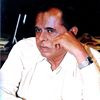
Ashok Jagtap
(film Musician)
You may have seen lot of violins together but today I am going to show you lot of guitars together. They call themselves guitar gang. Their contribution to Hindi film music is great. Each of them have their own unique style.
Spanish guitar plays a very important role in a film song. This is the instrument which provides Sur, as well as, Taal to singers. A song sounds perfect because the harmony played by guitarist. Guitar is back bone of a song.
It is not used only for accompaniment but for solo also.
Can you imagine song "Aaja aaja,mai hu pyar tera" from film Teesri Manzil without guitar solo? It was played by Dilip Naik? He is not in the photograph but his contribution can not be denied.
First I will talk about those who are seen in the photograph but today not among us. I wrote separate post about them in the past.
First it was Bhanu Gupta as we fondly called him Bhanuda, who left us. A fun loving person. Always smiling and making others smile. A wonderful human being. He was guitarist as well as good mouth organ player.
In the film Shole Amitabh Bachhan plays mouth organ. Jaya Bhaduri walking slowly with latern in her hand. What a beautiful scene. The hunting tune played by Abhitab is actually played by Bhanuda.
Next to leave this world was Gorakh Sharma.Musicians respected him not because he was Pyarelal's brother but the body of the work he left behind. Remember the famous solo in film Karz or guitar playing behind dialogue in the song" Mai aur meri tanhayi" film Silsilla. It was played by Gorakh.
Death of Ramesh Ayyar was shocking news.
He was a dashing young man who left the world too early. He was tall and with pleasent personality. He played many solo with Pancham and Usha Khanna. His untimely death shocked us all.
Let us look at the photo where biggest Jamavda of guitarist was held.
It was held at Sunil Koushik's studio. This guitar gang meets once every year.Let me introduce them to you.
Standing from left - Jayanti Gocher ,Ramesh Ayyar, Tabun, Bhanu Gupta, Gorakh Sharma , Sunil Kaushik, Arvind Haldipur and Honey Satamkar.
Seating - Rajusing,Samir Fatarfekar,Tushar Parte and Laxmikant Sharma.
Standing first person is Jayanti Gosher.Very good musician who can play many instruments like mandolin, Rabab, Oud, Banjo. He accompanied great singers like Jagjitsing, Talat Aziz, Bhupendra Singh and many others.Played with lp, Rd. ka, and op. He played all solo of Uttamsing's all films.
Ramesh Ayyar. No more.
Next Tabun is very talented guitarist. All Guitar solo of Bhappida are played by him.
He played with many other music directors too.
Bhanu Gupta is no more.
No need to introduce Bhupendrasing as all of you know him well but you know him as very good singer. What many of you don't know is he is very good guitarist.
He was associated with Panchamda for many years.Song like "Dam maro Dam", "Chura liya hai dil" ,"Do lafjo ki hai" and many other songs are played by him.
Gorakh Sharma. No more.
Sunil Koushik also played many solo of Panchamda. He played 12 string guitar also with different music directors.
I remember his solo which he played for Kalyanji Anandji and that film was Kalaakar. The song is "Nile nile ambar pe , chand jab aaye." Arvind Haldipur is another talented player like his father. His father was best mandolin player who played many solo of Shankar Jaykishan. Arvind played with many music directors. All solo of Rajesh Roshan are played by him.
Honey played with many music directors specialy with Nadim Shravan.
Raju Sing is son of late Charanjit Sing,a top player who played base guitar with L.P.,Madanmohan and many others.
Samirs father was my friend who played accordion.
Tushar Parte is son of famous arranger Bal Parte.
Laxmikant is brother of Kishor Sharma. (arranger).
All of them have great father or brother but they made space for themselves on their own merit.Today they are busy with different music directors.
This post was written about guitar gang only.
Still there are more than one hundred guitarist in the film industry.they are all equally good.
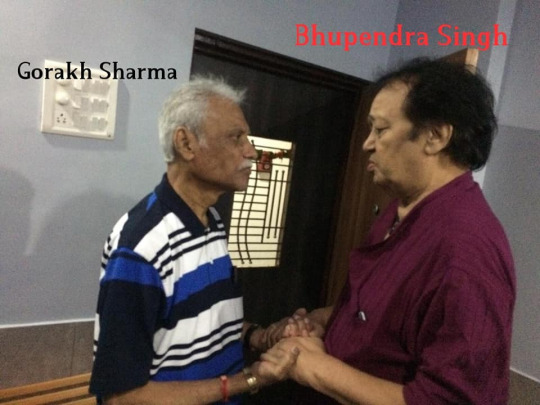

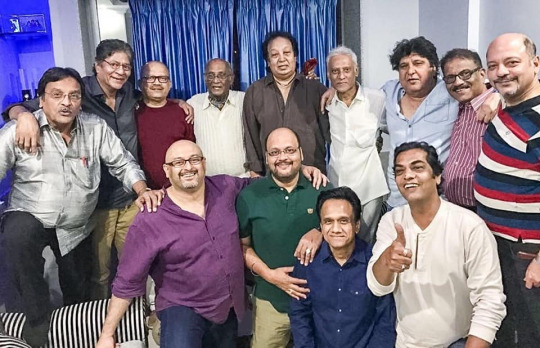
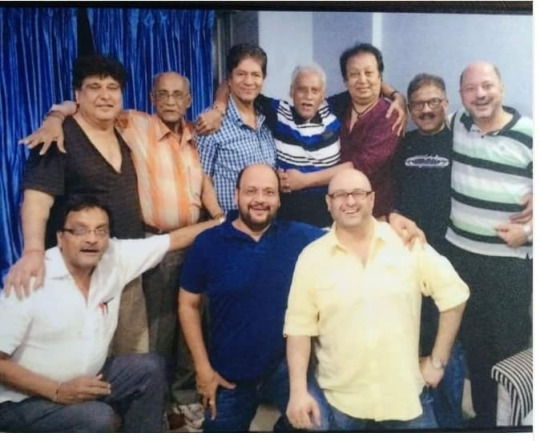
0 notes
Text
Life and times of Jaidev.
by
Vikram Appasaeb Jadav
*“Dekh li teri khudai, bas mera dil bhar gaya*
*Teri rehmat chup rahi, main rote rote mar gaya . .”*

One of the greatest but unsung and unwept composers of yore was Jaidev. In 1933, 15 year old Jaidev Verma ran away from Ludhiana to Bombay, to become a film star. He acted in eight films as a child artist in Wadia Film Company. But owing to his father's blindness, he had to return to Ludhiana. While he was acting in films in Bombay he took music lessons from Krishnarao Jaokar and Janardan Jaokar. After his father's death, it was his responsibility to look after his sister. After he got her married, he went to Lucknow and continued his music studies under Ustad Ali Akbar Khan.
Ali Akbar took Jaidev as his music assistant when he composed music for Navketan's “Aandhiyan” and “Hum Safar”. From “Taxi Driver” he became SD Burman’s assistant. SD had full trust in his genius assistant; each time he entrusted him with a composing or creative job, he would advise him not to complicate it with difficult ‘murkis’ and ‘harkats’. Jaidev’s contribution to the compositions of SD Burman can be gauged through these very intricate nuances, very typical of him, obvious in a number of gems like ‘Phaili hui hain sapnon ki baahen’ (House No. 44), ‘Hum bekhudi mein tumko pukare chale gaye’ (Kala Pani), ‘Hum hain raahi pyar ke’ (Nau Do Gyarah), ‘Dekho rootha na karo’ (Tere Ghar Ke Saamne), ‘Aise to na dekho’ (Teen Deviyan), and ‘Tere mere sapne ab ek rang hain’ (Guide) to name a few.
Jaidev got an independent assignment in “Joru Ka Bhai”, after which he composed music for ChetanAnand’s “Anjali”. Music of both of these films became very popular. But, with “Hum Dono”, Jaidev came into the limelight, and how? Who can forget the bhajan ‘Allah Tero Naam, Ishwar Tero Naam’ sung by Lata! And as long as there are lovers around, ‘Abhi Na Jao Chhodkar’ will be their favourite anthem as if it is a Valentine message. ‘Main zindagi ka saath nibhata chala gaya’ became the life philosophy of Dev Anand. Jaidev built a reputation as a sensitive composer who did not compromise on the quality of music for the sake of applause.
After Hum Dono’s success, a promise was made by Dev Anand that every alternate film of Navketan will have music by SD Burman and Jaidev. Accordingly, SD Burman was entrusted the baton of “Kala Bazaar” and Jaidev ‘signed’ for the music of “Guide” for which he is believed to have composed a couple of tunes too (‘Tere mere sapne ab ek rang hain’, and ‘Din dhal jaaye haye raat na jaaye); however, the film was made and released finally with music by S D Burman, his career best. Jaidev proposed, Dev Anand disposed! Probably, for the first time, Jaidev felt exploited and stifled at Navketan and “Guide” marked the end of his long and fruitful musical association with both Dev Anand and SD Burman. Navketan, too, never called him back, which was the unkindest cut of all. Though the hurt feeling lurked in his mind for long, his respect and reverence for SD Burman remained the same till his last. Besieged by a chain of misfortunes, Jaidev made “Jo kho gaya main usko bhulata chala gaya” the mantra of his life with his spiritual character to ‘guide’ him.
What happened to Jaidev after Hum Dono is the kind of heart-wrenching cruelty that film industry keeps inflicting on its best talents. After the mega success of Hum Dono songs Jaidev was the natural choice of Navketan for their next film Guide starring Dev Anand. Jaidev composed and recorded two brilliant songs and all persons in Navketan management were extremely happy with the songs. But all of a sudden, mysteriously enough Jaidev was thrown out of Guide!
It is said that Dev Anand pressurized Jaidev to work as S.D. Burman’s assistant in Guide. It was a cruel event where a sensitive creative genius like Jaidev was suppressed by the heartless mighty. Jaidev was never again invited by Navketan to compose songs. Dev Anand used both the Jaidev songs in his film Guide. It is said that those two songs were ‘Din Dhal Jaaye Haye Raat Na Jaye’ and ‘Tere Mere Sapne Ab Ek Rang Hai’ sung by Mohammad Rafi. Being cast out of Guide was a very big setback in Jaidev’s film music career. He never really recovered from the shock. Jaidev used to frequently narrate such incidents to his friends, wracked by inconsolable grief.
This was the time when Jaidev met and got introduced to young composers like Roshan and Madan Mohan. This is a great example of the saying ‘genius finds genius’. Roshan invited Jaidev to sing in his very first film. Once, when Roshan and Jaidev were going together to a film company, they saw Madan Mohan. Roshan was reported to have told Jaidev, “I am going to introduce you to a brilliant young composer”. On introduction, Madan Mohan and Jaidev needed no time at all to become best of friends.
Roshan, Madan Mohan and Jaidev had many similarities. They were rare music geniuses. They were unfailingly great human beings too. Their unquenchable thirst ran to music, languages, literature and wine. None of them were given the importance or prominence that they richly deserved. But they lived their entire lives as friends and supporters. Theirs was a rare friendship in the ‘man eats man’ world of cinema.
Film world has its own inviolable rules. It needs people who can achieve mass popularity by shortest possible route. Its impatience with geniuses is well known. Geniuses like Salil Chowdhury, Madan Mohan, Roshan, Vasant Desai and Jaidev failed in this race to huge popularity. They did not have the talent to market themselves. What complicated the matter was group politics that acted as a barrier to fresh music entering the industry. True geniuses who blazed their own path overcoming all barriers in our film industry are very few.
Jaidev also composed the musical score for “Maitee Ghar”, a Nepali film produced by King Mahendra. The King was so pleased with Jaidev that he offered him a blank cheque and asked him to fill in any amount as he wished. But Jaidev returned the cheque and asked for a tiger skin instead!
People who speak of the Golden Age of Hindi film music mostly speak of commercially successful names like Naushad, Shankar Jaikishen, S.D. Burman, R.D. Burman, Kalyanji Anandji and Laxmikant Pyarelal. But there are many composers who established their identities through the uniqueness of their compositions alone. They may not have composed music for a very large number of films. Many of their films might not have succeeded at the box office.
Jaidev had composed music for less than thirty films. The number of songs to his credit may not be more than hundred and fifty. But Jaidev is a name imprinted on the hearts of lovers of vintage Hindi film songs as the genius who gave such fabulous numbers as ‘Kabhi Khud Pe Kabhi Haalaat Pe’, ‘Allah Tero Naam’ and ‘Abhi Na Jao Chhod Kar’. ‘Kabhi Khud Pe Kabhi Haalaat Pe’ is among the best ghazal numbers sung by Mohammad Rafi. There are many who rate the number sung by Lata Mangeshkar for Jaidev ‘Allah Tero Naam’ as the best prayer song to have emerged from Indian films. In a recent televised event, Jaidev’s ‘Abhi Na Jao Chhod Kar’ was rated both as their favourites and the best Hindi film song ever by today’s stars Shankar Mahadevan and Farhan Akthar.
It is possible that an average listener may identify Jaidev as the only music composer from Hindi films to have won the National award thrice. But the lamentable fact is that this composer of incomparable songs, winner of many state awards and winner of ‘Sur Singar Samsad’ award for Lifetime Achievement in Music remains so unknown to common man that we keep hearing the question, “Jaidev? Who is he?” even from people who love his music!
It was Jaidev who introduced ghazal singer Hariharan to film music in the film Gaman (1979) with the song ‘Ajeeb Saaneha’. This is not merely one of Hariharan’s best songs it has become one of the finest ghazals in Hindi film music. It won the U.P. state award and a nomination for National award for Hariharan. In the film Kinare Kinare, Jaidev brought together four leading singers Mohammad Rafi, Talat Mehmood, Manna Dey and Mukesh to sing a song to be picturised on one character played by Dev Anand. It was an event nobody had tried till then.
Jaidev gave Yesudas some of his best Hindi songs that suited the unique pathos that Yesudas carried in his singing style. He even made him sing for Amitabh Bachhan in Aalaap released in 1977. ‘Zindagi Ko Sawarna Hoga’ and ‘Chand Akela’ with a light classical touch and the sad lullaby ‘Koi Gata Main So Jata’ in this film, were Yesudas’ very important Hindi film songs. Another fine ghazal singer Bhupinder shot to fame with a fabulous Jaidev song from his film Gharonda. Who can forget the depth of feeling that the song ‘Ek Akela Is Shahar Mein’ carried with such conviction? Jaidev’s Gaman also saw the introduction of another important singer, Suresh Wadkar to Hindi films with the classical based ‘Seene Mein Jalan’.
Jaidev was admired by producers as a good composer, but they considered him good enough for the small-budget films. Though most of his films failed at the box office, many of them, such as 'Kinare Kinare', 'Reshma Aur Shera', 'Alap', 'Prem Parbat', 'Gaman' and 'Ankahee', are remembered for his imaginative musical score. It is unfortunate that despite his expertise in classical and folk music and imaginative approach, Jaidev had only 'Hum Dono' and to a certain extent 'Mujhe Jeene Do' as the only commercially successful films to his credit.
Jaidev was a lonely man with no house of his own and no family to take care of him except a few friends who were mostly from the literary fields or judges, lawyers, painters, high rank officials and dignitaries. He needed a room to display his awards and trophies but sadly, most part of his life in Bombay, he lived alone as a tenant in a single room at Lily Court, near Ritz Hotel, Churchgate. His “Gharonda” song ‘Ek akela is shehar mein aab-o-dana dhoondhta hai, ashiyana dhoondhta hai…’ was almost biographical and depicted his plight.
A winner of four Sur Singar Samsad awards, the Lata Mangeshkar Award of the MP Government and three National Awards (‘Reshma Aur Shera’, ‘Gaman’, ‘Ankahee’), Jaidev did not get the recognition he deserved and that is a sad commentary on the musical culture of modern cinema. Looking back on Jaidev's career as a music director, his struggles, achievements and set-backs, his pensive melody 'Kabhi khud pe kabhi halat pe rona aya' from 'Hum Dono' suddenly comes to mind and the heart grieves for the talent that was wasted. By a strange quirk of fate, before his composing days, Jaidev also sang songs on All India Radio. Sahir’s “Tang aa chuke hain kashm-e-kash-e-zindagee se hum” was first sung on AIR by none other than Jaidev. He was the first composer who used the 'glockenspiel' for the cigarette lighter tune in “Hum Dono”. (It was Kersee Lord who brought this instrument to India, and also played it to good effect.)
As compared to his contemporaries, Jaidev was underpaid or not paid in time or not at all paid many a times. But, money considerations did not dilute his passion or affect the quality of work. He was a workaholic and had a method to his madness; he took note of the backdrop of the film, the situation, the character, the dialect, the lyrics and worked meticulously on the details of the song, its arrangement and orchestration till the final recording. No doubt he was exploited many a times of which he was well aware, but it was only when he felt so, he cut off his ties with the filmmakers (like with Dev Anand and S D Burman after “Guide”) and dissociated himself from the composing assignment. Not many know that the title track of Ramanand Sagar’s epoch making serial “Ramayan” was by Jaidev. He left the serial at the nascent stage itself as he was not even reimbursed the taxi fare (from Churchgate to Natraj Studios, Andheri East), leave aside the credit or remuneration for composing!!
In Jaidev’s own opinion he gave his best for Hrishikesh Mukherji’s “Aalap”, but when Mukherji and Amitabh Bachchan were ignored, what can be said about Jaidev’s plight? But Jaidev gave his all for the ultimate reward he got from “Aalap”. His association with Harivanshrai Bachchan got him the opportunity to compose the “Madhushala”, which had Manna Dey singing the “Madhushala” into the annals of posterity!
After three decades of continuous struggle as a music director, and with only thirty six films to his credit, Jaidev was a tired man. Age was catching up with him and his health was failing. He had no one except friends to care for him and no house to call his own. Earlier he used to spend his vacant hours over a glass of liquor. But later even that blessing was denied to him on medical grounds. On December 14, 1986, when Jaidev stepped on the stage to receive the fourth Sur Singar Samsad award for his classical music in 'Ankahee', he looked weak but healthy enough to last another decade. The glow on his tired face was probably the last flash of a falling star. On January 6, 1987, he died suddenly, at the age of 68, leaving the film industry to grieve for the loss of a talent it had consistently neglected. Life had been unreasonably cruel to him but death was more than gracious to liberate him from the misfortunes of life.
A Tribute to Jaidev
~ Vikram Appasaheb Jadhav
Kolhapur 06/01/2019
जयदेव को देवानंद और s d burman ने दुःख पहुंचाया guide के 2 गाने तेरे मेरे सपने याब एक रंग हैं और दिन ढल जाए रात न जाये की धुने जयदेव नेबनाई थीं।
0 notes
Text
Facebook strikes global licensing deal with Indian music label Saregama
Facebook said on Wednesday it has entered into a global deal with Saregama, one of India’s oldest and largest music labels, to license its music for video and other social experiences across its eponymous service and Instagram.
The partnership, which comes weeks after Swedish music giant Spotify also signed a deal with Saregama, will allow users to choose from a wide variety of music to add to their social experiences such as videos, stories via music stickers and other creative content, Facebook said. Users will also be able to add songs to their Facebook profile.
Saregama, one of the oldest music labels in the world, is the best place to find tracks from several India music legends, including Lata Mangeshkar, R.D. Burman, Mohammed Rafi, Talat Mahmood, Manna Dey, Kalyanji-Anandji and Hemant Kumar. The giant says its library contains more than 100,000 Bollywood songs, ghazals and more in over 25 languages.
Kolakata-based Saregama’s shares surged by 20% on the news.
Facebook maintains similar deals with other music labels in India, its biggest market by user count, including Yash Raj Films, Zee Music Company and T-Series, one of the top YouTube channels worldwide. Bloomberg reported last year that Facebook was also in talks with international music labels and had started testing video music in India and Indonesia.
“At Facebook, we believe music is an integral part of self-expression and bringing people closer together and creating memories that last. We are very proud to partner with Saregama that will allow people on our platforms, globally, to use their favourite retro Indian music to further enrich their content on our platforms,” said Manish Chopra, director and head of Partnerships at Facebook India, in a statement.
Facebook has also signed deals with music labels such as Universal Music Group to license its recorded music and publishing catalogs for video and other content across its services, including Oculus. In 2018, Facebook also signed a deal with Spotify to allow users to share Spotify albums and tracks to Instagram Stories — a feature it added to Facebook Stories last year.
from iraidajzsmmwtv https://ift.tt/30234lZ
via IFTTT
0 notes
Link
Facebook said on Wednesday it has entered into a global deal with Saregama, one of India’s oldest and largest music labels, to license its music for video and other social experiences across its eponymous service and Instagram.
The partnership, which comes weeks after Swedish music giant Spotify also signed a deal with Saregama, will allow users to choose from a wide variety of music to add to their social experiences such as videos, stories via music stickers and other creative content, Facebook said. Users will also be able to add songs to their Facebook profile.
Saregama, one of the oldest music labels in the world, is the best place to find tracks from several India music legends, including Lata Mangeshkar, R.D. Burman, Mohammed Rafi, Talat Mahmood, Manna Dey, Kalyanji-Anandji and Hemant Kumar. The giant says its library contains more than 100,000 Bollywood songs, ghazals and more in over 25 languages.
Kolakata-based Saregama’s shares surged by 20% on the news.
Facebook maintains similar deals with other music labels in India, its biggest market by user count, including Yash Raj Films, Zee Music Company and T-Series, one of the top YouTube channels worldwide. Bloomberg reported last year that Facebook was also in talks with international music labels and had started testing video music in India and Indonesia.
“At Facebook, we believe music is an integral part of self-expression and bringing people closer together and creating memories that last. We are very proud to partner with Saregama that will allow people on our platforms, globally, to use their favourite retro Indian music to further enrich their content on our platforms,” said Manish Chopra, director and head of Partnerships at Facebook India, in a statement.
Facebook has also signed deals with music labels such as Universal Music Group to license its recorded music and publishing catalogs for video and other content across its services, including Oculus. In 2018, Facebook also signed a deal with Spotify to allow users to share Spotify albums and tracks to Instagram Stories — a feature it added to Facebook Stories last year.
from Social – TechCrunch https://ift.tt/30234lZ
Original Content From: https://techcrunch.com
0 notes